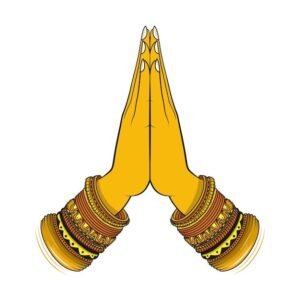Ayurveda Benefits 101: Understanding the Basics of Doshas and Body Types
Ayurveda, a holistic healing system rooted in India, has been practiced for over 5,000 years. Translating to the science of life,” Ayurveda offers a unique approach to health, wellness, and balance by focusing on individual body types, energies, and natural rhythms. Central to Ayurveda is the concept of doshas-Vata, Pitta, and Kapha-three fundamental energies that in–fluence our physical characteristics, mental tendencies, and overall well-being.
In this article, we’ll dive into the basics of Ayurveda’s doshas, help you understand your own body type, and explore how aligning with Ayurvedic principles can promote health, harmony, and vitality.
Ayurveda Benefits 101: Understanding the Basics of Doshas and Body Types

What Are Doshas? Understanding the Three Vital Energies*
The concept of doshas is at the heart of Ayurveda. These three energies—Vata, Pitta, and Kapha—are believed to govern all physiological and psychological processes within our body and mind. Each person has a unique combination of these doshas, with one or two typically being more dominant, shaping their body type, personality, and health tendencies.
Vata (Air and Ether)
Characteristics: Vata is linked with movement, creativity, and adaptability. People with a dominant Vata dosha are often lively, quick-thinking, and enthusiastic.
Physical Traits: Vata types are usually slender, with prominent bones, dry skin, and a tendency towards coolness. Their energy comes in bursts, but they can tire easily.
Mental and Emotional Traits*: Vata types are imaginative, expressive, and curious. However, an excess of Vata can lead to restlessness, anxiety, and instability.
Imbalances and Health Concerns: When Vata is out of balance, it can manifest as dry skin, constipation, joint pain, and difficulty sleeping. Balancing Vata often involves grounding practices, warmth, and nourishing foods.

Pitta (Fire and Water) *
Characteristics: Pitta embodies transformation, intensity, and determination. Pitta-dominant individuals are often ambitious, focused, and driven.
Physical Traits: Pitta types usually have a medium build, warm body temperature, and often have a sharp appetite. They may have fair or sensitive skin and are prone to inflammation.
Mental and Emotional Traits: Pitta individuals are intelligent, goal-oriented, and perceptive. However, excess Pitta can lead to irritability, anger, and impatience.
Imbalances and Health Concerns: Imbalances in Pitta can manifest as skin rashes, heartburn, acidity, and irritability. Cooling practices, calming environments, and fresh, light foods can help bring Pitta into balance.
Kapha (Earth and Water)
Characteristics: Kapha is the dosha of structure, stability, and endurance. Kapha-dominant people are nurturing, patient, and steady.
Physical Traits: Kapha types are often well-built, with a solid frame and smooth, moist skin. They tend to have a calm, even energy and may struggle with sluggishness.
Mental and Emotional Traits: Kapha individuals are compassionate, loyal, and supportive. When imbalanced, Kapha can lead to lethargy, depression, and attachment.
Imbalances and Health Concerns: Excess Kapha may result in weight gain, fluid retention, and respiratory issues. To balance Kapha, focus on stimulating activities, lighter foods, and invigorating practices.

Identifying Your Dosha: Discovering Your Unique Ayurvedic Blueprint
Each person has a unique Ayurvedic constitution, known as *prakriti*, which is a specific combination of the three doshas. Your prakriti remains constant throughout life, while your current state, known as vikriti, can fluctuate based on lifestyle, diet, stress, and environment.
To determine your primary dosha, consider your physical traits, mental tendencies, and emotional patterns. You might recognize traits from all three doshas, but usually, one or two will stand out. Here’s a quick guide to help identify your dominant dosha:
Vata: Thin build, dry skin, quick movements, creative, energetic, easily fatigued.
Pitta: Medium build, warm skin, focused, determined, prone to anger, sharp appetite.
Kapha: Solid build, moist skin, steady, calm, affectionate, tends to be slower in movement.
Ayurvedic practitioners often use detailed questionnaires and pulse diagnosis to determine your dosha more accurately. However, you can start by observing which dosha characteristics resonate most with you.
How Doshas Affect Health, Personality, and Lifestyle Choices*
Each dosha not only affects physical characteristics but also shapes personality traits and lifestyle preferences. Recognizing your dosha can help you make decisions that align with your natural inclinations, from the types of exercise that benefit you most to the foods that enhance your health.
Vata in Life and Health*
Best Exercise: Grounding and calming exercises like yoga, walking, or tai chi.
Best Foods: Warm, nourishing foods with healthy fats, like soups, stews, and cooked grains.
Mental Balance: Daily routines, warm environments, and grounding practices help Vata stay balanced.
Pitta in Life and Health*
Best Exercise: Cooling exercises that don’t overheat the body, like swimming, cycling, or moderate hikes.
Best Foods: Fresh, cooling foods like fruits, salads, and whole grains.
Mental Balance: Spending time in nature, practicing relaxation techniques, and maintaining a balanced work schedule can help ease Pitta’s intensity.

Kapha in Life and Health*
Best Exercise: Stimulating, vigorous activities like running, dancing, or cardio exercises.
Best Foods: Light, warm, and spicy foods, such as leafy greens, legumes, and lean proteins.
Mental Balance: Kapha benefits from variety and excitement in daily routines, as well as frequent social interactions and uplifting activities.
Balancing Your Dosha Through Ayurvedic Practices
Ayurveda emphasizes lifestyle practices that support each dosha, promoting balance and preventing illness. Here are some general guidelines to help balance each dosha:
Balancing Vata
Diet: Favor warm, moist foods, and avoid cold, dry, or raw foods. Incorporate spices like ginger and cinnamon.
Lifestyle: Establish a regular routine, avoid over-stimulation, and prioritize rest.
Self-Care: Try daily oil massages (Abhyanga) with warming oils like sesame or almond oil.
Balancing Pitta
Diet: Favor cooling foods, such as leafy greens, cucumbers, and sweet fruits. Avoid spicy and oily foods.
Lifestyle: Practice moderation in work and exercise, spend time in cool environments, and avoid direct heat.
Self-Care: Use calming essential oils like lavender and sandalwood; meditation and mindfulness practices are beneficial.

Balancing Kapha
Diet: Favor light, spicy, and warm foods. Limit dairy, oily, and heavy foods.
Lifestyle: Engage in activities that challenge and stimulate; avoid excess sleep and sedentary habits.
Self-Care: Dry brushing before showering can stimulate circulation; try invigorating oils like eucalyptus or rosemary.
Practical Ayurvedic Tips for Everyday Wellness*
- Rise with the Sun: Following the natural rhythm of sunrise and sunset helps maintain dosha balance, with early rising especially beneficial for Kapha types.
- Eat Mindfully: Ayurveda emphasizes mindful eating, which involves eating slowly, savoring food, and avoiding distractions. This supports digestion and reduces doshic imbalances.
- Seasonal Living: Adjust your diet and lifestyle according to the seasons. For instance, summer calls for cooling foods to balance Pitta, while winter benefits from warming foods to pacify Vata.
- Herbs and Spices: Ayurvedic herbs and spices, like turmeric, ashwagandha, and triphala, can be used to support digestion, immunity, and overall health. Consult an Ayurvedic practitioner for guidance on herbal remedies specific to your dosha.
- Self-Care Rituals: Daily routines (Dinacharya) such as oil pulling, tongue scraping, and dry brushing promote detoxification and align with Ayurvedic principles for whole-body wellness.

Embracing Ayurvedic Balance: Benefits of Aligning with Your Dosha*
Living in harmony with your dosha supports physical health, mental clarity, and emotional stability. Ayurveda’s personalized approach recognizes that everyone’s needs are unique, and what works for one person may not suit another. By aligning your lifestyle, diet, and self-care practices with your dosha, you can enhance vitality, prevent imbalances, and promote long-term wellness.
Benefits of Ayurvedic Balance:
Improved Digestion: Eating in line with your dosha improves gut health and enhances nutrient absorption.
Enhanced Energy Levels: Balancing the doshas ensures sustained energy and prevents burnout.
Mental Clarity and Focus: Ayurvedic practices help clear mental fog, reduce stress, and enhance focus.
Natural Immunity: By keeping doshas balanced, you strengthen immunity and protect against seasonal illnesses.
Emotional Resilience: Ayurveda’s holistic approach cultivates inner peace, helping you handle life’s challenges with calm and resilience.

Conclusion: The Path to Self-Discovery with Ayurveda*
Ayurveda is more than

Namaste


